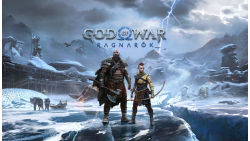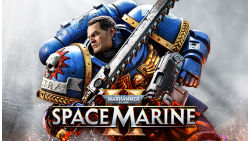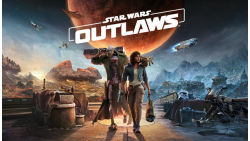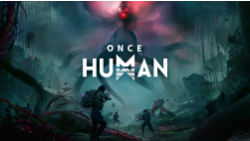AMD Radeon R7 M260 vs AMD Radeon RX 7900 XT
The Radeon RX 7900 XT has 3,901% better performance than the Radeon R7 M260 for the 3DMark 11 Performance GPU benchmark.
The Radeon RX 7900 XT has 51% of the performance per dollar compared to the leader for the 3DMark 11 Performance GPU benchmark: AMD Radeon RX 9070 XT.
Summary
About the AMD Radeon R7 M260 GPU
The AMD Radeon R7 M260 is an end-of-life mobile graphics card that released in Q2 2014. It is built on the GCN 3.0 GPU microarchitecture (codename Topaz) and is manufactured on a 28 nm process.
Memory
The R7 M260 has 2 GB of DDR3 memory, with a 900 MHz memory clock and a 64 bit interface. This gives it a memory bandwidth of 14.4 Gb/s, which affects how fast it can transfer data to and from memory. GPU memory stores temporary data that helps the GPU with complex math and graphics operations. More memory is generally better, as not having enough can cause performance bottlenecks.
Cores and Clock Speeds
The R7 M260 includes 384 stream processors (SPs), the processing units for handling parallel computing tasks. The GPU operates at a core clock speed of 940 MHz and can dynamically boost its clock speed up to 980 MHz. Complementing the processing units are 24 texture mapping units (TMUs) for efficient texture filtering and 8 render output units (ROPs) for pixel processing.
Benchmark Performance
The R7 M260 has the 392nd best 3DMark 11 Performance GPU score among the 567 benchmarked GPUs in our database. It achieves 1.46% of the performance of the best benchmarked GPU, the NVIDIA GeForce RTX 5090.
About the AMD Radeon RX 7900 XT GPU
The AMD Radeon RX 7900 XT is a desktop graphics card that launched in Q4 2022 with a MSRP of $899. It is built on the RDNA 3.0 GPU microarchitecture (codename Navi 31) and is manufactured on a 5 nm process.
Memory
The RX 7900 XT has 20 GB of GDDR6 memory, with a 2,500 MHz memory clock and a 320 bit interface. This gives it a memory bandwidth of 800 Gb/s, which affects how fast it can transfer data to and from memory. GPU memory stores temporary data that helps the GPU with complex math and graphics operations. More memory is generally better, as not having enough can cause performance bottlenecks.
Cores and Clock Speeds
The RX 7900 XT includes 5,376 stream processors (SPs), the processing units for handling parallel computing tasks. The GPU operates at a core clock speed of 1,387 MHz and can dynamically boost its clock speed up to 2,394 MHz. It usually operates at 2,025 MHz during typical gaming workloads. Complementing the processing units are 336 texture mapping units (TMUs) for efficient texture filtering and 192 render output units (ROPs) for pixel processing. Additionally, the GPU features 168 AI accelerators optimized for AI workloads and 84 ray accelerators dedicated to real-time ray tracing calculations.
Compatibility & Power Consumption
The RX 7900 XT occupies 2 PCIe expansion slots. It supports HDMI 2.1a, DisplayPort 2.1, USB Type-C display connections. AMD recommends a power supply of at least 700 W to handle the GPU's thermal design power (TDP) of 300 W.
Benchmark Performance & Value
The RX 7900 XT has the 10th best 3DMark 11 Performance GPU score among the 567 benchmarked GPUs in our database. It achieves 58.48% of the performance of the best benchmarked GPU, the NVIDIA GeForce RTX 5090. Its 75,896 score and $899 launch price (MSRP) gives it a performance per dollar of 84.42. This is the 42nd best in value for the 3DMark 11 Performance GPU benchmark.
General Info
General overview of the GPU, including details like its manufacturer, release date, launch price, and current production status.
| Info | Radeon R7 M260 | Radeon RX 7900 XT |
|---|---|---|
| Manufacturer | AMD | AMD |
| Architecture | GCN 3.0 | RDNA 3.0 |
| Market Segment | Mobile | Desktop |
| Release Date | Q2 2014 | Q4 2022 |
| Launch Price (MSRP) | -- | $899 |
| Production Status | End-of-life | Active |
| Shop | Check Price | Check Price |
Gaming Performance
Select a game to compare FPS metrics







FPS Benchmarks
This table showcases the average frame rate (FPS) achieved both GPUs in at various resolutions. Frame rate is a crucial indicator of how smoothly the GPU can run the game. A higher FPS generally translates to a smoother gameplay experience.
- Frames Per Second
 God of War Ragnarök | Radeon R7 M260 | Radeon RX 7900 XT |
|---|---|---|
| Low - 1080p | -- | 225 FPS |
| Medium - 1080p | -- | 219 FPS |
| High - 1080p | -- | 196 FPS |
| Ultra - 1080p | -- | 183 FPS |
| QHD - 1440p | -- | 140 FPS |
| 4K UHD - 2160p | -- | 86 FPS |
Compare Frames Per Second (FPS)
The average frame rate (FPS) in can be compared to similar GPUs to assess relative performance. Generally, higher FPS results in a smoother gameplay experience.
| GPU | Frames Per Second | |
|---|---|---|
| Radeon RX 7900 XTX | 109 | +27% |
| GeForce RTX 5070 Ti | 109 | +27% |
| GeForce RTX 4080 | 100.8 | +17% |
| Radeon RX 9070 | 94 | +9% |
| Radeon RX 7900 XT | 86.1 | |
| GeForce RTX 5070 | 81.5 | -5% |
| GeForce RTX 3090 | 74.6 | -13% |
| GeForce RTX 4070 | 67.4 | -22% |
| GeForce RTX 5060 Ti (16 GB) | 62.7 | -27% |
Compare Cost Per Frame
The average cost per frame in can be compared to similar GPUs to assess relative value. Generally, a lower cost per frame implies better value for your money.
| GPU | Cost Per Frame | |
|---|---|---|
| GeForce RTX 5060 | 8.17 | -22% |
| GeForce RTX 4070 | 8.89 | -15% |
| Radeon RX 7900 XTX | 9.17 | -12% |
| GeForce RTX 3070 Ti | 10.33 | -1% |
| Radeon RX 7900 XT | 10.44 | |
| GeForce RTX 4090 | 11.45 | +10% |
| GeForce RTX 4080 | 11.89 | +14% |
| GeForce RTX 3090 | 20.09 | +92% |
Benchmark Performance
The Radeon RX 7900 XT has 3,901% better performance than the Radeon R7 M260 for the 3DMark 11 Performance GPU benchmark.
The Radeon R7 M260 is ranked 392nd with a score of 1,897, and the Radeon RX 7900 XT is ranked 10th with a score of 75,896.
The Radeon RX 7900 XT has 130% of the performance per dollar compared to the leader for the 3DMark 11 Performance GPU benchmark: NVIDIA GeForce RTX 5090.
Radeon RX 7900 XT's 84.42 performance per dollar ranks it 0th among the other benchmarked GPUs in our database.
Relative Performance
The average score in the benchmark test can be compared to similar GPUs to assess relative performance. Generally, powerful GPUs tend to have higher scores.
| GPU | Benchmark Performance | |
|---|---|---|
| GeForce RTX 5070 Ti | 85,811 | +4,424% |
| Radeon RX 7900 XTX | 84,792 | +4,370% |
| Radeon RX 7900 XT | 75,896 | +3,901% |
| GeForce RTX 4070 Ti | 75,612 | +3,886% |
| GeForce RTX 4070 Ti SUPER | 74,834 | +3,845% |
| Radeon HD 8770M | 1,934 | +2% |
| Radeon R7 M260X | 1,903 | +0% |
| Radeon R7 M260 | 1,897 | |
| Radeon R7 M265 | 1,882 | -1% |
| Radeon R7 M270 | 1,857.5 | -2% |
Relative Value For Money
The average performance per dollar in the benchmark test can be compared to similar GPUs to assess relative value. A higher score implies a better value for your money.
| GPU | Performance Per Dollar | |
|---|---|---|
| GeForce RTX 4070 Ti | 94.63 | +12% |
| GeForce RTX 4070 Ti SUPER | 93.66 | +11% |
| GeForce RTX 4080 SUPER | 87.14 | +3% |
| GeForce RTX 4060 Ti (16 GB) | 86.4 | +2% |
| Radeon RX 7900 XTX | 84.88 | +1% |
| Radeon RX 7900 XT | 84.42 | |
| GeForce RTX 3070 Ti | 82.78 | -2% |
| Radeon RX 6800 XT | 80.19 | -5% |
| GeForce RTX 3080 | 76.84 | -9% |
| GeForce RTX 4080 | 71.95 | -15% |
Benchmark Scores
This table showcases the average performance scores achieved by both GPUs across industry-standard benchmark tests. These scores provide a valuable insight into overall performance. Powerful GPUs tend to have higher scores.
- Popular
| Benchmark | Radeon R7 M260 | Radeon RX 7900 XT |
|---|---|---|
| 3DMark Time Spy Graphics | -- | 26,376 |
| 3DMark Time Spy Score | -- | 25,005.5 |
| 3DMark Cloud Gate Graphics | 5,603 | 259,707 (+4,535.14%) |
| 3DMark Fire Strike Standard Graphics | 1,067 | 63,399 (+5,841.8%) |
| 3DMark Night Raid Graphics | -- | 225,446 |
| 3DMark 11 Performance Score | 1,942.5 | 51,605.5 (+2,556.65%) |
| Cinebench R15 OpenGL 64 Bit | 33.8 | -- |
| PassMark G3D Mark | 521 | 28,955 (+5,457.58%) |
| PassMark G2D Mark | 126 | 1,244 (+887.3%) |
| Unigine Heaven 3.0 DirectX 11 | 14.2 | -- |
| Unigine Heaven 3.0 OpenGL | 11.3 | -- |
Technical Specs
Graphics Processor
General information about the graphics processing unit like their architecture, manufacturing process size, and transistor count. Newer GPU architectures generally bring efficiency improvements and may introduce technologies that enhance graphical capabilities.
| Spec | Radeon R7 M260 | Radeon RX 7900 XT |
|---|---|---|
| Codename | Topaz | Navi 31 |
| Architecture | GCN 3.0 | RDNA 3.0 |
| Process Size | 28 nm | 5 nm |
| Transistors | 1,550 million | 57,700 million |
Memory Details
Memory specifications like their capacity, bandwidth, and clock speeds. GPU memory stores graphics data like frames, textures, and shadows which helps display rendered images. These specs are crucial for graphics-intense applications like gaming and 3D modeling.
| Spec | Radeon R7 M260 | Radeon RX 7900 XT |
|---|---|---|
| Memory Size | 2 GB | 20 GB |
| Memory Type | DDR3 | GDDR6 |
| Memory Bandwidth | 14.4 Gb/s | 800 Gb/s |
| Memory Clock | 900 MHz | 2,500 MHz |
| Memory Interface | 64 bit | 320 bit |
| L1 Cache | 16 KB | 256 KB |
| L2 Cache | 128 KB | 6 MB |
Board Compatibility
Compatibility information like their slot size, bus interface, power consumption, and display support. These specs are useful for verifying compatibility with your motherboard, power supply, and monitor.
| Spec | Radeon R7 M260 | Radeon RX 7900 XT |
|---|---|---|
| Slots | -- | 2 slots |
| Bus Interface | PCIe 3.0 x8 | PCIe 4.0 x16 |
| Thermal Design Power (TDP) | -- | 300 W |
| Suggested PSU | -- | 700 W |
| Power Connectors | -- | 2x 8-pin |
| Outputs | Device Dependent | HDMI 2.1a, DisplayPort 2.1, USB Type-C |
Cores & Clock Speeds
Processing power information like its cores and clock speed. These specs impact how fast they can process graphics. Each type of core or component serves a specific computational purpose.
| Spec | Radeon R7 M260 | Radeon RX 7900 XT |
|---|---|---|
| Stream Processors (SP) | 384 | 5,376 |
| Compute Units (CU) | 6 | 84 |
| Texture Mapping Units (TMU) | 24 | 336 |
| Render Output Units (ROP) | 8 | 192 |
| AI Accelerators | -- | 168 |
| Ray Accelerators | -- | 84 |
| Core Clock Speed | 940 MHz | 1,387 MHz |
| Core Clock Speed (Boost) | 980 MHz | 2,394 MHz |
| Core Clock Speed (Game) | -- | 2,025 MHz |
Theoretical Performance
Theoretical performance numbers derived from the raw specifications of the different components like core count and clock speeds. While these provide a glimpse into peak processing power, they do not represent real-world performance.
| Spec | Radeon R7 M260 | Radeon RX 7900 XT |
|---|---|---|
| Pixel Fill Rate | 7.84 GPixel/s | 459.6 GPixel/s |
| Texture Fill Rate | 23.52 GTexel/s | 804.4 GTexel/s |
| FP32 Performance | 752.6 GFLOPS | 51.48 TFLOPS |
| FP64 Performance | 47.04 GFLOPS | 1.61 TFLOPS |
API Support
Graphics API versions supported by these graphics cards. APIs evolve over time, introducing new features and functionalities. Older GPUs may not support recent versions.
| Spec | Radeon R7 M260 | Radeon RX 7900 XT |
|---|---|---|
| DirectX | 12 (12_0) | 12 Ultimate (12_2) |
| OpenCL | 2.1 | 2.2 |
| OpenGL | 4.6 | 4.6 |
| Shader Model | 6.5 | 6.8 |
Check out these comparisons for similar GPUs:
Looking for alternatives? Check out these similar GPUs:
* Performance rating, performance per dollar, and rankings are based on the 3DMark 11 Performance GPU benchmark and MSRP.
